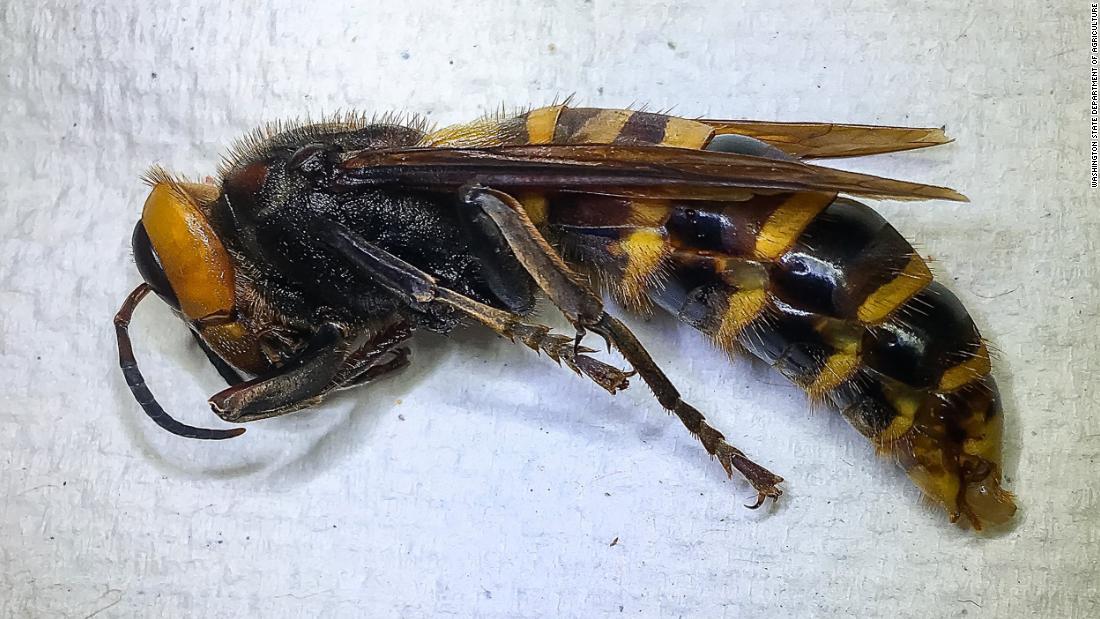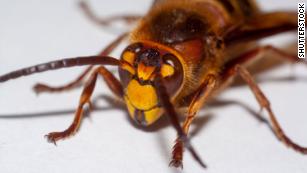Washington state has trapped its first 'murder hornet'

(CNN) — Washington state has trapped its first Asian giant hornet -- or, what we've come to know as the "murder hornet."
Scientists have been trying to trap the invasive insects and prevent an infestation since they were first spotted in the state last year. More than two inches long, the hornets get their nickname from their propensity to attack and kill honeybees and potentially, people.
Up until now, five giant hornets had officially been sighted in the state. This is the first one found in a trap, according to a news release.

Officials announced Friday that they had identified the Asian giant hornet earlier this week from a trap collected near Birch Bay on July 14.
"This is encouraging because it means we know that the traps work," Sven Spichiger, managing entomologist for Washington's Department of Agriculture (WSDA) said in the announcement. "But it also means we have work to do."
That work includes looking for nests using infrared cameras and setting more traps, the announcement said. The state's agriculture department plans to deploy special traps that will catch the hornets and keep them alive so they can be tagged and tracked back to their colonies. Once the agency finds the colonies, they'll destroy them.
The hope is to find the nest by mid-September before the colony begins creating new reproducing queens and drones, the statement said.
Scientists aren't sure how these giant hornets native to Asia ended up in Washington state.
Among the possibilities are international container ships, purchases shipped into the US, travelers visiting the US or returning from another country, the state says on its website.
Washington state agricultural officials are asking beekeepers and residents to report any sightings of the giant hornets. August and September are when they're most likely to be spotted, according to the news release.
But don't get too close.
CNN's Faith Karimi contributed to this report.
